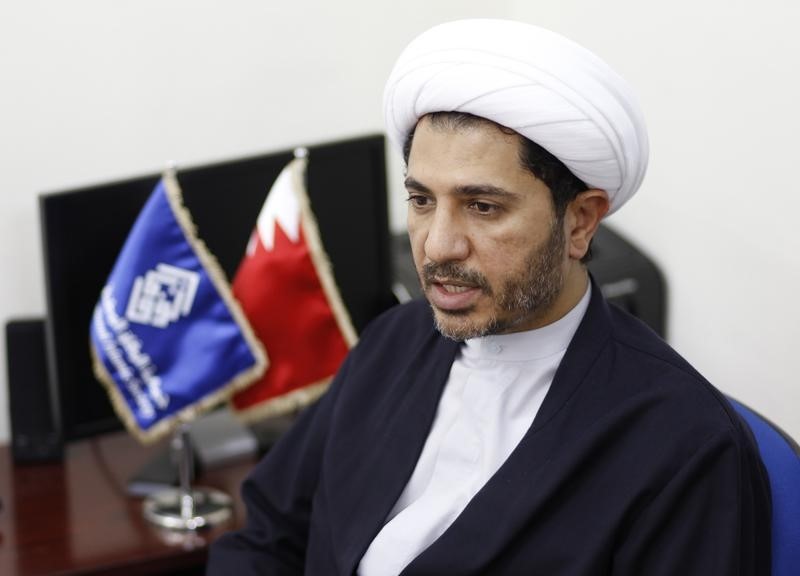MANAMA (Reuters) - An opposition leader will go on trial this month on charges of promoting the violent overthrow of Bahrain's political system, his lawyer and authorities said on Monday, in a move likely to further inflame unrest in the Gulf kingdom.
Sheikh Ali Salman, head of the Shi'ite Muslim al-Wefaq Islamic Society, was arrested on Dec. 28 after leading a protest rally against elections in November which his party boycotted.
The Sunni-ruled island has been gripped by political turmoil since a 2011 uprising by majority Shi'ite Muslims demanding reforms and a bigger role in government.
Defence lawyer Abdallah al-Shamlawi said in a Twitter message Salman was facing four charges including promoting political change by force.
Bahrain's Public Prosecution said it had concluded its investigation on "the secretary general of one of Bahrain's political societies", according to state news agency BNA. The statement did not name Salman.
"The public prosecution's investigations concluded that the defendant's actions constituted a clear incitement to carrying out acts of violence against the Kingdom, in support of terrorist attacks that have witnessed the deaths of 14 policemen."
BNA said the defendant had been questioned in the presence of his lawyers.
"Hearing has been set on 28/1/2015 before the high criminal court," the public prosecution posted on its Twitter account, again without naming Salman.
"Criminal prosecution for a political association ... on charges of promoting the overthrow and change of the political regime by force and threats."
Washington, a close ally of Bahrain which bases its Fifth Fleet there, has expressed concern over Salman's detention and his arrest has sparked protests at home.
On Friday around 150 protesters clashed with security forces in Manama. At least two people were wounded by tear gas canisters, and Al-Wefaq sent journalists photographs of men wounded by birdshot.
Authorities quelled the 2011 revolt with support from other member states of the Gulf Cooperation Council but sporadic unrest has continued.

Demonstrations have increasingly given way to bomb attacks on the security forces. At least two people were killed in two separate attacks last month.